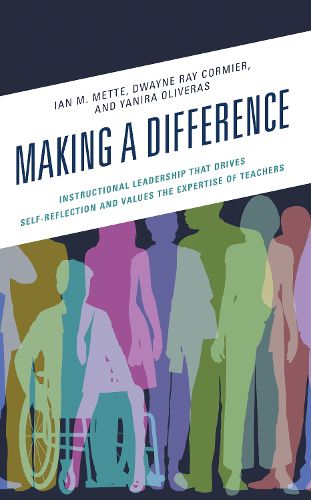Readings Newsletter
Become a Readings Member to make your shopping experience even easier.
Sign in or sign up for free!
You’re not far away from qualifying for FREE standard shipping within Australia
You’ve qualified for FREE standard shipping within Australia
The cart is loading…






Making A Difference aims to equip educators with a framework for providing instructional leadership that ensures culturally responsive instruction. Changing what is taught, how it is taught, and who it is intended for is one of the most effective ways of contributing to a more progressive, equitable, and inclusive society. This requires instructional leaders to mitigate harmful educational practices from prepackaged curricula and teacher evaluation systems. Through specific structures, schools can support teachers to become culturally responsive instructors through formative feedback structures that can transform schools from systems of oppression into systems of opportunity.
$9.00 standard shipping within Australia
FREE standard shipping within Australia for orders over $100.00
Express & International shipping calculated at checkout
Making A Difference aims to equip educators with a framework for providing instructional leadership that ensures culturally responsive instruction. Changing what is taught, how it is taught, and who it is intended for is one of the most effective ways of contributing to a more progressive, equitable, and inclusive society. This requires instructional leaders to mitigate harmful educational practices from prepackaged curricula and teacher evaluation systems. Through specific structures, schools can support teachers to become culturally responsive instructors through formative feedback structures that can transform schools from systems of oppression into systems of opportunity.